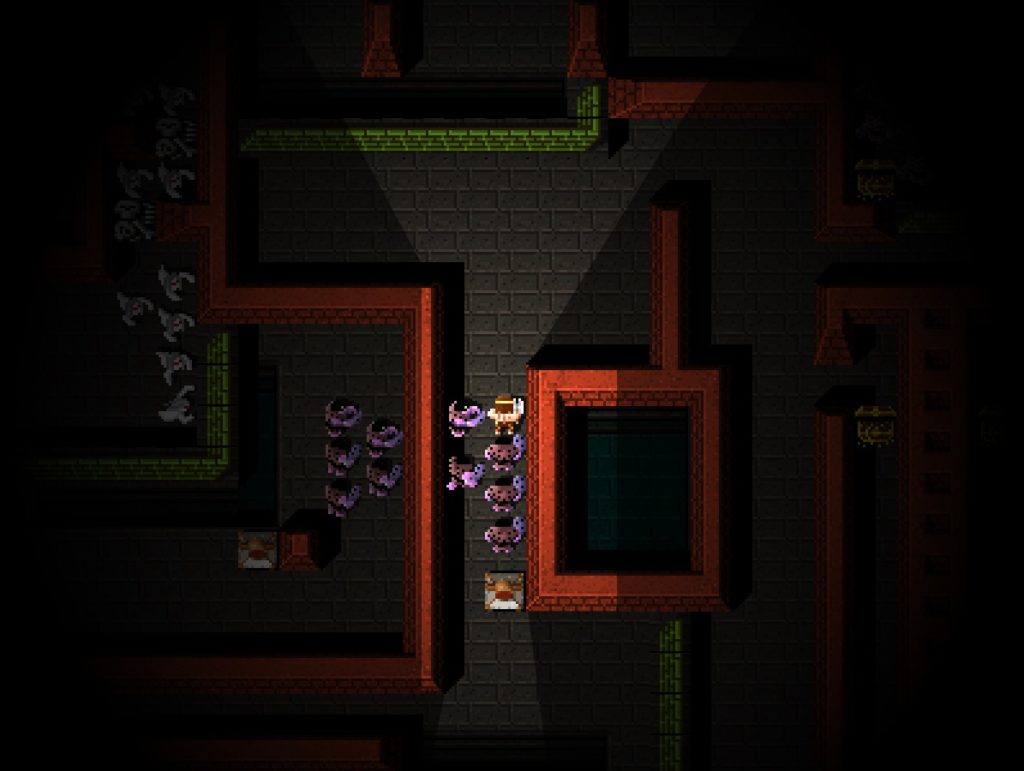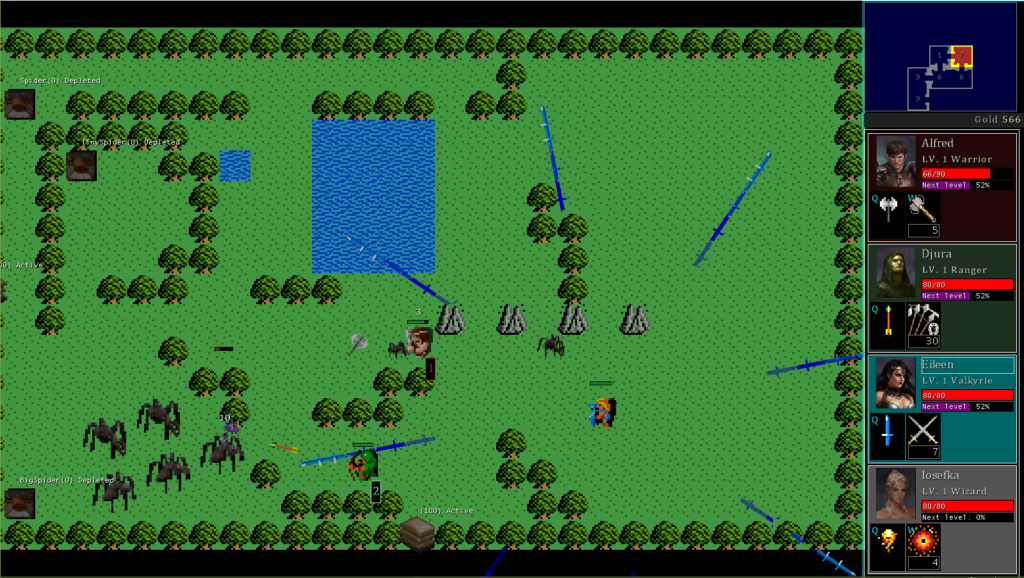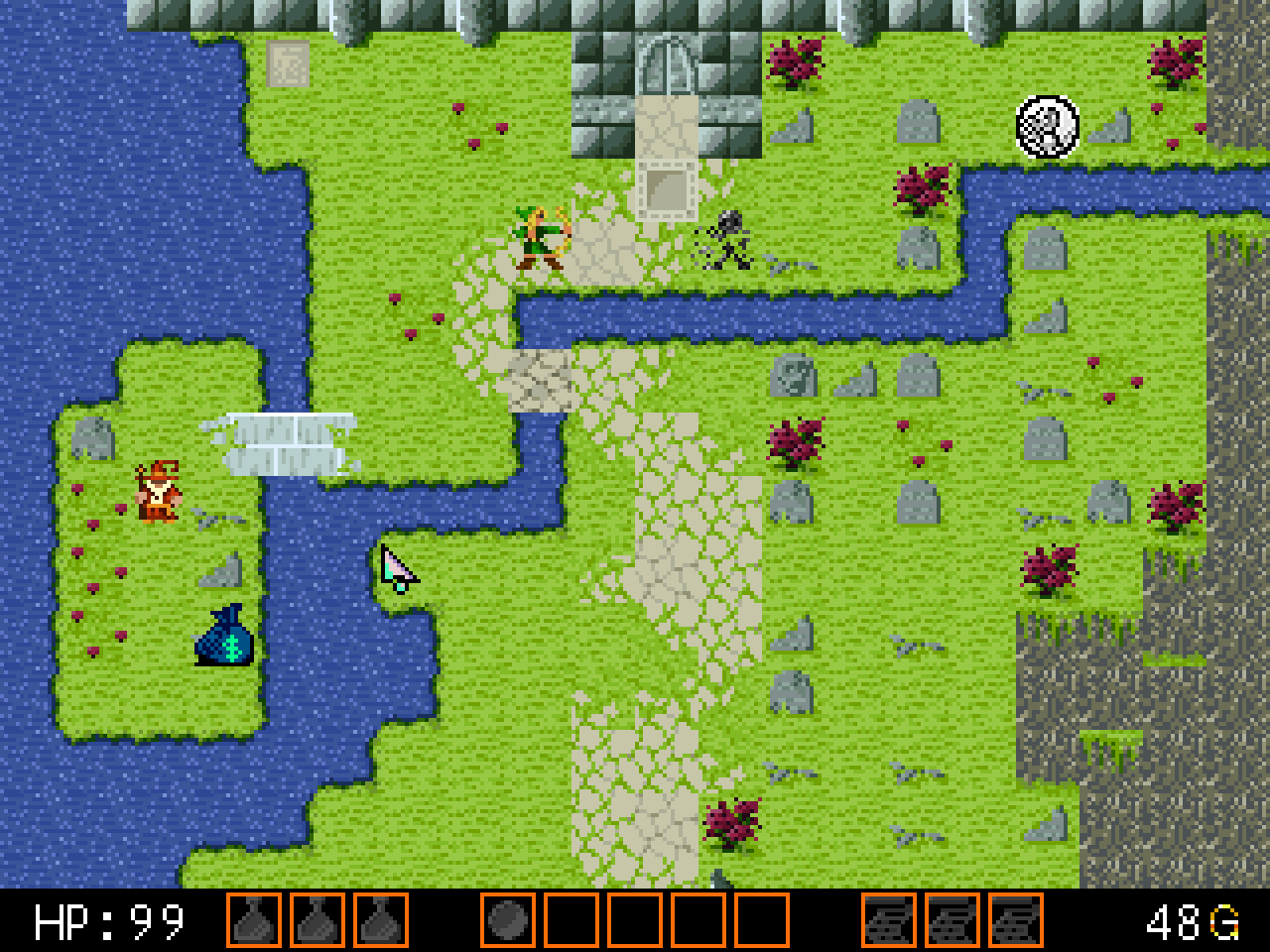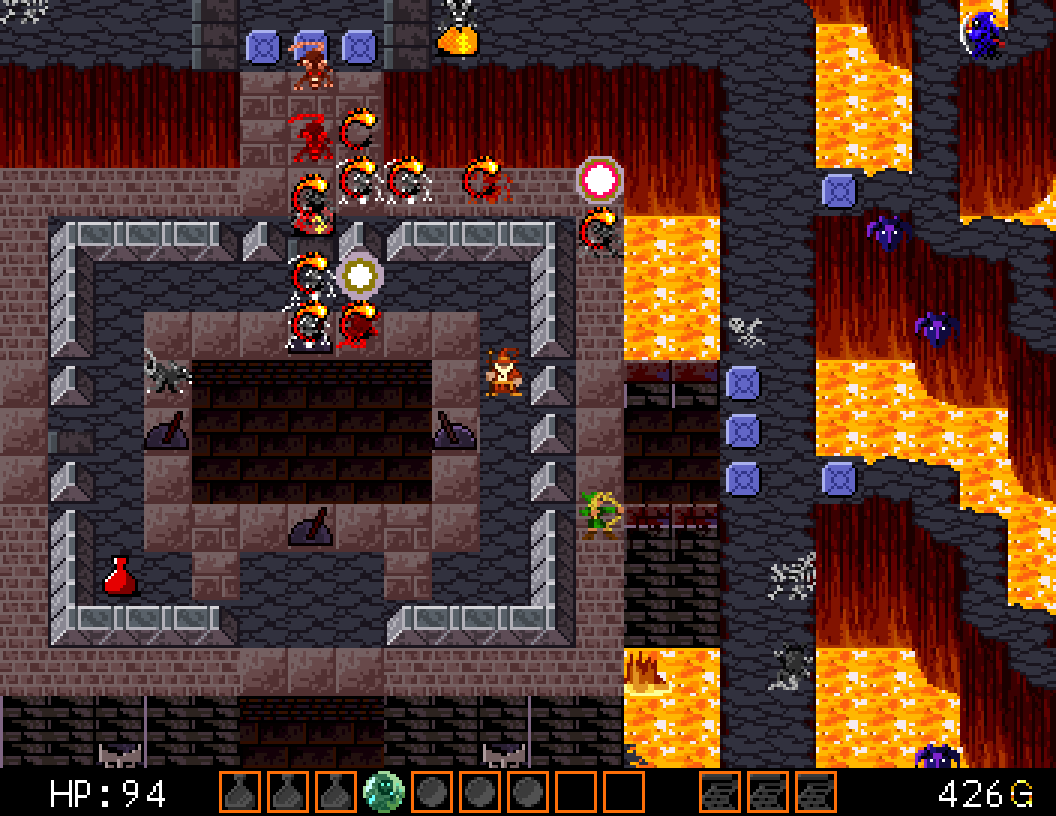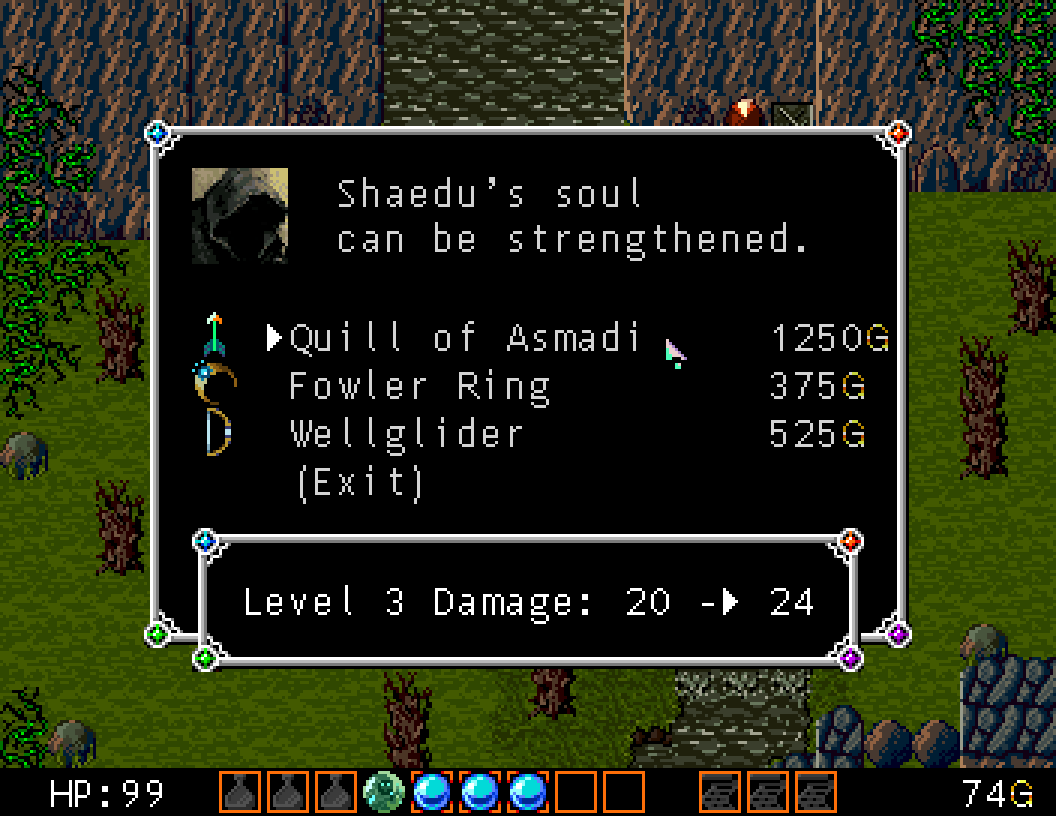I get the occasional email from folks wondering what I’ve been working on lately and where I’ve been, since I haven’t posted here or on Twitter in a long time. And since it’s been 8 years since Escape Goat 2 launched, a lot of you are wondering if I’m still making games at all. This is an update on where I’ve been and a bit of an explanation for why there hasn’t been much news from me lately. Be warned, it is not a particularly positive or uplifting story, but you may find it interesting.
From about 2014 thru 2019, I worked on a half dozen prototypes in order to chase various business opportunities. Escape Goat 2’s poor commercial reception put me into business mode, where not only did I feel I had to analyze the market and pick the ideal genre (or collection of genres), but that whatever I made next had to be a big hit, to make up for last time, and justify this whole career I’d chosen. (If you’re considering going down this road, don’t. Turn around, and focus on making stuff you enjoy, and seeing feasible projects through to completion. This is my advice to my past self, may it be useful to someone out there reading this.)
Though most of my prototypes ended up on the scrap heap, one lead I pursued worked out, and in 2019 I got a publishing deal with a major indie publisher for a prototype I had been developing for around a year: an action RPG dungeon crawler roguelike city builder RTS survival defense game. Basically, a tremendous challenge of a design for anyone, and I made it harder on myself by immediately staffing up an art team and finding myself as manager, producer, lead designer, tools developer…basically everything but art itself, and entered into full production before the prototype was fully fleshed out. We had a very solid 15 minutes of gameplay, but things kind of fell apart in terms of what the mid and late game would look like. While everything was being illustrated, I changed stuff left and right trying to find the fun, and after two years, was just lost in the woods.
We were a year behind schedule in 2020 when the pandemic hit, and that was around the time that I started having increasing problems with energy levels. I was taking full days off because I was simply unable to concentrate. Those days grew to weeks sometimes. Charting my hours worked per month through the year, it was getting continually worse. My team and publisher urged me to take three months off, hoping that would cure the “burnout” and get things back on track.
Unfortunately it didn’t. I turned to modern medicine for help, and after a slew of tests received a diagnosis of chronic fatigue syndrome. If you know someone who has it, you know that it’s worse than it sounds. To summarize, any physical or mental exertion is met 1-2 days later with an extreme loss of energy. In its mild form, which I had in 2020, a 40 hour work week would result in needing to take the next week off. In moderate cases (where I am now), I am lucky to work for an hour a day without being struck by “post exertion malaise”. You can see what sort of problem this would present if you are an indie game developer.
There is no cure for CFS and if you simply keep trying to brave face it and muster the strength to work, do housework, generally live life, you will gradually lose your stamina to the point where you pretty much can’t do anything anymore (severe CFS). I’ve now been in the care of my health provider’s CFS specialist team, who have helped me hold the line and even regain a bit of capability over the last two months (I take low-dose Naltrexone which helps me get rest from sleep, and a beta blocker to keep my heart rate low). The biggest change though is just learning to do more things lying down or reclining. I try to get one 20-minute walk in per day, which isn’t enough to send me into PEM, and staves off the problems that being completely inactive causes.
There are supportive people in my life, but it takes people a while for them to grasp what this condition is. I mean, it’s just in your head, right? It’s invisible and there is no biomarker (yet), so friends and family are going to start with “you just need to get outside and get moving,” “you’re just unmotivated in your line of work,” etc. They don’t mean any harm by it, and some of them will eventually start to understand. But once they do, there’s not much they can do besides express their sympathies. (To be heard and have your experience taken at face value is worth a lot though…)
Probably the most frustrating part of it is not knowing how bad it’s going to get. Have I held the line at one hour a day on average for work/activity? Or is that going to go to one hour a week, and then to zero? The past 24 months has mainly been a steady decline in energy levels, so it’s not pleasant to think of what things might be like next year or the year after. My doctors have said that in their experience, many of their patients have regained some capability through following their advice, medication, and pacing, but they haven’t ever had a patient who’s fully recovered.
One lifeline I have these days is talking with friends who are working on their own projects, and doing what I can to support and encourage them. Even if my development plans are on hold, I still have enough energy to workshop ideas, and any benefit that has to others brings me a lot of satisfaction. Speaking of which, if anyone reading this wants to get in touch, I’m always down to discuss game design, computer science, game audio… I still have a ton of expertise and passion for these things even if I can’t directly make use of them at the moment.
So, we’ll see what happens from here. I’ll post an update for any changes in my situation. Kindest Regards, and best of luck to you in your life and pursuits.
